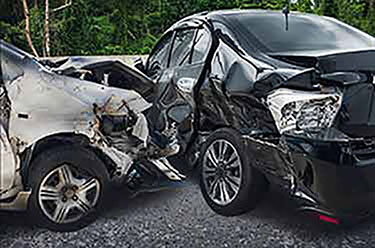Published in Criminal Law by Chris Eskew on March 15, 2024.
Please note that we are not focusing on traffic ticket cases right now. However, we represent misdemeanor and felony cases related to driving crimes.
Understanding Habitual Traffic Offender Penalties in Indiana
According to traffic laws, being considered a habitual traffic violator (HTV) is triggered by accumulating three judgments within a 10-year period, notably for specific offenses such as driving while intoxicated with a blood alcohol content (BAC) of .08 percent or higher and engaging in reckless driving.
If you are a habitual traffic offender, Indiana law directs the Bureau of Motor Vehicles (BMV) to suspend your license for 5 years, 10 years, or life. The number of years depends on your offenses.
If you are determined to be a habitual traffic violator and are caught driving after receiving proper notice, you may be charged with a Level 6 felony, which carries a sentence of 6 months to 2 and a half years and may have your license suspended for life if you are convicted of the felony.
If you are caught driving on a lifetime suspension, you may be charged with a Level 5 felony, which carries a sentence of 1 – 6 years.
For assistance, please send an online message or call our experienced Indianapolis traffic violation attorneys at (317) 974-0177 today.
What Are the Reasons a Person Might Be Classified as a Habitual Traffic Violator?
Whether you are classified as a habitual traffic violator depends on both the number and type of offenses you have committed. These factors also affect your penalty.
There are three main levels of offenses that are considered differently. The first category consists of offenses that result in death, the second involves serious offenses that do not result in death, and the third consists of all other traffic offenses.
Two Offenses Resulting in Death in Ten Years
You will be classified as a habitual traffic offender in Indiana if you have convictions for committing two of the following traffic offenses resulting in death in a ten-year period:
- Reckless homicide caused by operating a motor vehicle,
- Voluntary or involuntary manslaughter caused by operating a motor vehicle,
- Failure of the operator of a motor vehicle involved in an accident resulting in death or injury to any person to stop at the scene of the accident and give the required information and assistance
- Operating a motor vehicle while intoxicated resulting in death, or
- Driving with blood alcohol over the legal limit, resulting in death.
Indiana law directs the BMV to suspend the driver licenses of these types of habitual traffic offenders for ten years. If at least two of your very serious offenses are based on intoxication, the BMV will suspend your license for life.
Three Serious Offenses in Ten Years
Three convictions for the following types of serious violations will also make you a habitual traffic violator:
- OVWI,
- Driving with blood alcohol over the legal limit,
- Reckless driving,
- Felony criminal recklessness involving operating a motor vehicle
- Drag racing,
- Resisting law enforcement using a motor vehicle,
- Leaving the scene of the accident without following Ind. Code 9-26-1.1.1 or a similar prior statute, or
- Any felony in which operating a motor vehicle is an element of the offense.
If you are a habitual traffic violator based on these serious offenses, the BMV will suspend your license for ten years.
The offenses resulting in death listed in the previous section can also count in this section.
For example, if you have been convicted of two of the serious violations listed here—say, reckless driving and drag racing—plus you have one conviction for an offense resulting in death—say, reckless homicide—you will have the three violations required to make you a habitual traffic offender under this section.
Ten Offenses in Ten Years
If you have excessive regular traffic violations, this may also be enough to make you a habitual traffic violator in Indiana. Any violations other than parking or equipment violations can count toward your ten violations.
However, to be classified as an Indiana habitual traffic offender for regular traffic violations, at least one of your violations must be:
- One of the serious violations listed in the categories above,
- Driving with a suspended license, or
- Driving without ever obtaining a license.
The BMV will suspend the licenses of these types of offenders for five years.
How Does Indiana Determine Whether I Am a Habitual Traffic Offender?
If the BMV’s records show that your violations make you a habitual offender, then the BMV is required to mail you notice of your pending license suspension. The notice must include information about how you can appeal the BMV’s action.
A license suspension for a habitual traffic offender goes into effect 30 days after the notice is mailed.
If the BMV does not discover that you are a habitual offender within two years of the final conviction that would give you that status, the BMV is not allowed to suspend your driving privileges.
How Can I Defend Myself?
If you have received notice of a pending suspension from the BMV, you will want to contact an experienced Indianapolis, Indiana traffic attorney as soon as possible. If you have been charged with serious traffic violations, an attorney can help you defend yourself and avoid potentially hefty penalties.
The traffic attorneys at Eskew Law will provide you with personal, one-on-one service. We pride ourselves on exceptional communication with our clients, and we will fight for you every step of the way.
Call us at (317) 974-0177 or contact us online to schedule your initial consultation.

